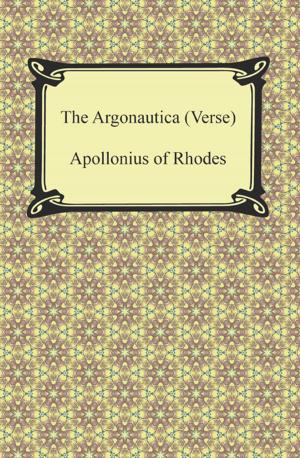| Author: | Euripides | ISBN: | 9781420945713 |
| Publisher: | Neeland Media LLC | Publication: | December 15, 2009 |
| Imprint: | Digireads.com Publishing | Language: | English |
| Author: | Euripides |
| ISBN: | 9781420945713 |
| Publisher: | Neeland Media LLC |
| Publication: | December 15, 2009 |
| Imprint: | Digireads.com Publishing |
| Language: | English |
Euripides, along was Sophocles and Aeschylus, is responsible for the great rise of Greek tragedy. It was in the 5th Century BC, during the height of Greece's cultural bloom, that Euripides lived and worked. Of his roughly ninety-two plays, only seventeen tragedies survive. Both ridiculed and lauded during his life, Euripides now stands as an innovator of the Greek drama. His play "Alcestis" was awarded second place upon its debut in 438 at the Festival Dionysia, the litmus test and judging grounds for Greek tragedy of the day. "Alcestis", the oldest of his extant plays, examines love, death, and marriage. The play follows Apollo, Admetus, and Heracles as they struggle to save Admetus' beloved wife Princess Alcestis from thanatos (death) in Hades. The play is now considered a problem play due to its difficult categorization between tragedy and comedy. "Alcestis" continues to stir debate and discussion and remains one of Euripides most fascinating works.
Euripides, along was Sophocles and Aeschylus, is responsible for the great rise of Greek tragedy. It was in the 5th Century BC, during the height of Greece's cultural bloom, that Euripides lived and worked. Of his roughly ninety-two plays, only seventeen tragedies survive. Both ridiculed and lauded during his life, Euripides now stands as an innovator of the Greek drama. His play "Alcestis" was awarded second place upon its debut in 438 at the Festival Dionysia, the litmus test and judging grounds for Greek tragedy of the day. "Alcestis", the oldest of his extant plays, examines love, death, and marriage. The play follows Apollo, Admetus, and Heracles as they struggle to save Admetus' beloved wife Princess Alcestis from thanatos (death) in Hades. The play is now considered a problem play due to its difficult categorization between tragedy and comedy. "Alcestis" continues to stir debate and discussion and remains one of Euripides most fascinating works.















